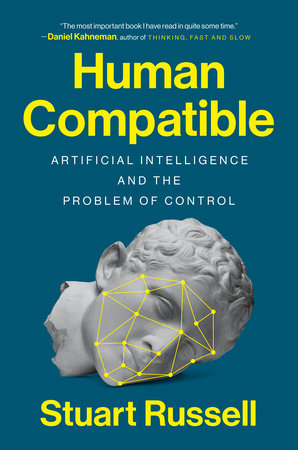This is a review of Human Compatible by Stuart Russell first published in the Church Times.
If you seek a book that explains why artificial intelligence (AI) will shape and change the future, this is the book to choose. It is clearly written by a recognised expert in the field, and offers novel suggestions that will leave general readers and specialists alike with a sense that they have shared ideas at the vanguard of the debate.
Stuart Russell does not pull his punches. The emergence of machines that are more intelligent than us should worry us, even if that is not likely to happen this century, such are the hurdles that the scientists face. The author also avoids unnecessary hype. Instead of evoking a future in which humans are born to flee fighting robots, he makes remarks such as this: “In the area of consciousness, we really do know nothing, so I’m going to say nothing. No one in AI is working on making machines conscious, nor would anyone know where to start.”
This is no comfort, however. The explanation of AI laid out by Russell makes it clear that machines do not need to be conscious to outsmart us in terms of our behaviour and decision-making.
The way to avoid a nightmare, Russell proposes, is to programme machines to benefit humans while also ensuring that exactly what this entails remains unclear. I presume Russell believes that this will be technically possible, but whether it’s humanly possible, I doubt: it is hard to live with such doubts, and those with the resources to build AIs are likely to be those with clearly specified, not open-ended, life goals.
But my real fear is not that super-intelligent machines will one day outwit us: it is that, in becoming dependent on machines, we forget what it means to be human. Consider the cognitive science that underpins AI research. It tends to reduce intelligence to decision-making, and is simply blind to the imaginative intelligence of Jane Austen, Freud, or Bach. It has nothing to say about the spiritual intelligence that produced the visions of Hildegard and Dante.
This intelligence emerges when the human mind participates experientially with life in all its fullness. It requires an awake consciousness. At one point, Russell notes that the AI future means that “We will need to become good at being human” and more skilful at “the art of life itself”. But there’s little sense of what that could entail. The spread of that ignorance is what causes me to fear for the future.
